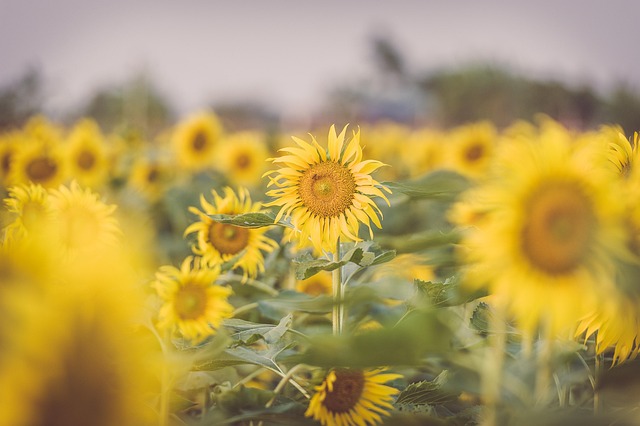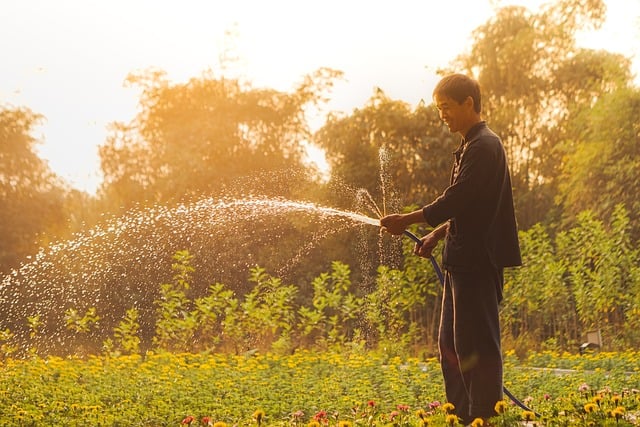The process of growing plants from seed first captivated me in gardening. Years have passed since I first saw how seeds change, yet the wonder of germination always excites me. Change is the core of gardening, and caring for plants is gardening’s labor. Nothing remains constant for very long. The tactile aspect of weeding, digging, and planting is an excellent diversion from staring at a screen, which is something that many of us are doing more of these days.

Carl Jung, the renowned psychologist of the 20th century, saw the benefits of gardening because he thought that people’s contemporary lives had distanced them from the “dark, maternal, earthy ground of our being.” He described the garden as an old place where we might feel a connection to the soil. Taking care of plants helps us understand the life cycle, which is characterized by regrowth and rebirth after destruction and decay. When we use the transformational energies of nature, we may also experience a subtle shift in ourselves. Many claim that starting and maintaining a garden has assisted them in overcoming traumatic or life-altering events.
I’m embarrassed to say that I had no gardening experience and saw it as outside chores when I married landscape designer Tom Stuart-Smith in my mid-twenties. Then, early in our marriage, we were given the wonderful chance to create a garden from the ground up at our Hertfordshire home—a converted barn. I started to see gardening differently as Tom’s imaginative plan for the windswept landscape around us took form. We had constructed a vegetable garden, which I threw myself into caring to when our youngest kid began school. I grew to understand that gardening is more of a connection than a hobby; that is, a relationship with a location, with nature, and, to a certain degree, with life itself.
The gardener engages in a living arrangement in which they never have complete authority. Mother Nature eventually serves as a reminder of our limitations, even if we may feel powerful when we alter a portion of our surroundings and feel like we have some temporary control. One of the elements that makes gardening so interesting is this contrast between empowerment and disempowerment. By acknowledging and appreciating our accomplishments, we develop resilience and coping skills. Growing gardens has a profoundly positive impact on many facets of life, including the emotional, spiritual, physical, and social domains. My book, The Well Gardened Mind: Rediscovering Nature in the Modern World (William Collins, £9.99), aims to fully depict the extent of this. I conducted interviews for my study with participants in gardening programs that included at-risk kids, veterans, and inmates as well as individuals dealing with addiction, melancholy, and anxiety. Many described gardening as a transformative experience; for others, it was a life-saving one. Their tales were really emotional to hear.
My interactions with a group of inmates in New York’s biggest jail, Rikers Island, are among my most unforgettable experiences. If only they could discover a solution, many of them would give everything to transform their life and overcome their overwhelming feelings of guilt. When they cultivated their own vegetables, they had something concrete to look at, share, and feel like they had accomplished something by gardening. The Horticultural Society of New York oversees the project and, importantly, offers internships in the neighborhood after its distribution. Within three years, almost 60% of Rikers inmates return to prison; however, among participants in this community gardening program, the reoffending rate drops to less than 15%. In this instance, the growth of self-belief was the most significant transformation that gardening brought about.

Tom and I have been working on restoring an ancient orchard near our house for the last several years, using some of the lessons we learned from my book. The Serge Hill Project for Gardening, Creativity, and Health is a community and education initiative that we are building on this one-acre parcel. A distinctive arrangement of more than 1,500 herbaceous perennials arranged in one-meter-square areas surrounds the structure at its center. This Plant Library is a living experiment that will serve as a resource for education and provide stock beds for the tiny nursery Sunnyside Rural Trust, our partner organization that supports people with learning disabilities, is setting up here. We will be collaborating with nearby schools, nonprofit organizations, and other community groups that want to learn about gardening and discover the restorative potential of nature this summer as the project gets underway. Additionally, we’ll be hosting a free schedule of speakers, workshops, and garden tours. Please join us if you are able.
